Sun-Powered Snacking
By Ethan Watters
Published 05-24-23
Submitted by Hormel Foods Corporation
Processing 100,000 pounds of grain a day takes a lot of energy, and this plant gets it from the sun
The sun shines more than 270 days of the year in Fresno, Calif., home of the Corn Nuts® brand roasting and packaging facility. That sunshine, combined with the rich alluvial soil of the San Joaquin River valley, makes for a great place to grow the Peruvian Cusco hybrid corn that creates those distinctive extra-large kernels. But the farmers aren’t the only ones who employ energy from the sun. Thanks to visionary managers, those sunny days now power nearly all of the Corn Nuts® facility’s activity — even after the sun goes down.
The Corn Nuts® brand began its solar journey in 2017 when it made an agreement with SolarCity to build a large solar array. The plant agreed to provide a four-acre lot they weren’t using adjacent to the facility and SolarCity would fund the capital investment. In return, the plant would promise to buy the power from the facility at a fixed rate for 20 years. In the end, the project would become an example of one of the most high-tech, state-of-the-art solar projects ever developed and one of the five biggest in the state.
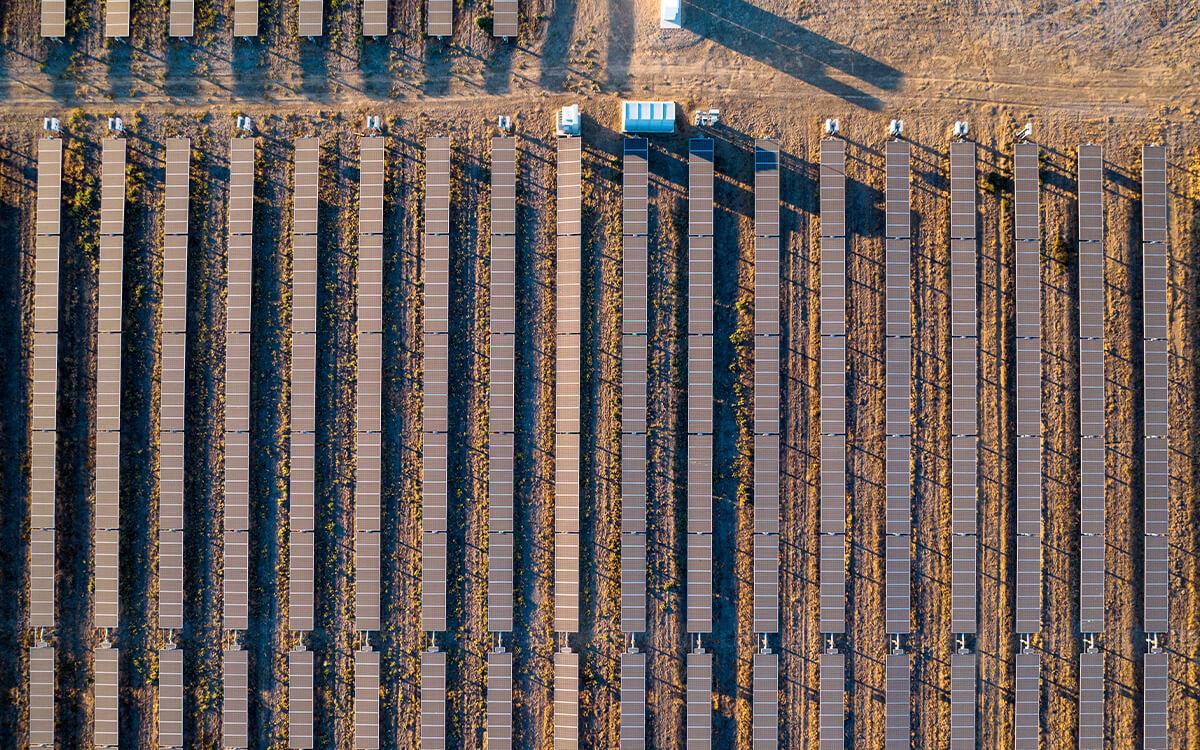
Commitment To Renewable Energy
This sort of ambitious, long-term commitment to renewable energy is part of the ongoing climate stewardship plan at Hormel Foods, through which the company is aggressively expanding its portfolio of renewable energy investments. One the company’s 20 by 30 Challenge goals is to match 100% of its energy use with renewable sourcing. In 2022, the company achieved 100% renewable energy sourcing for its domestic energy use.
Not long after the Fresno plant leadership signed the deal to install solar panels in their large backyard, Tesla bought SolarCity and the new leadership there suggested a different, and much more ambitious, vision for the project. Instead of the original plan for stationary units, they would install 40 panels, covering an area equivalent to over three football fields, that would pivot from east to west during the day to capture the maximum amount of California sun. That power would then be fed into a huge Tesla battery system that would be able to run the plant for four hours after sunset. The new plan was an order of magnitude more complex.

The path to renewable energy innovation at scale is never easy. The installation at the Fresno plant was one of the first times that a solar-charged Tesla battery system was used at this scale. The technology was complicated and the installation and maintenance required the best technicians in the solar industry.
“We did a lot of piloting for Tesla and there were only five units in California at this size and we had one of them,” says Dan Pattani, Corn Nuts® brand plant manager. “When we were putting together the solar array and the battery system, there were really only a few technicians in the whole state who could truly understand it. The system hasn’t been without its problems. We had to spend a lot of time working with them. We’ve come a long way over the years.”
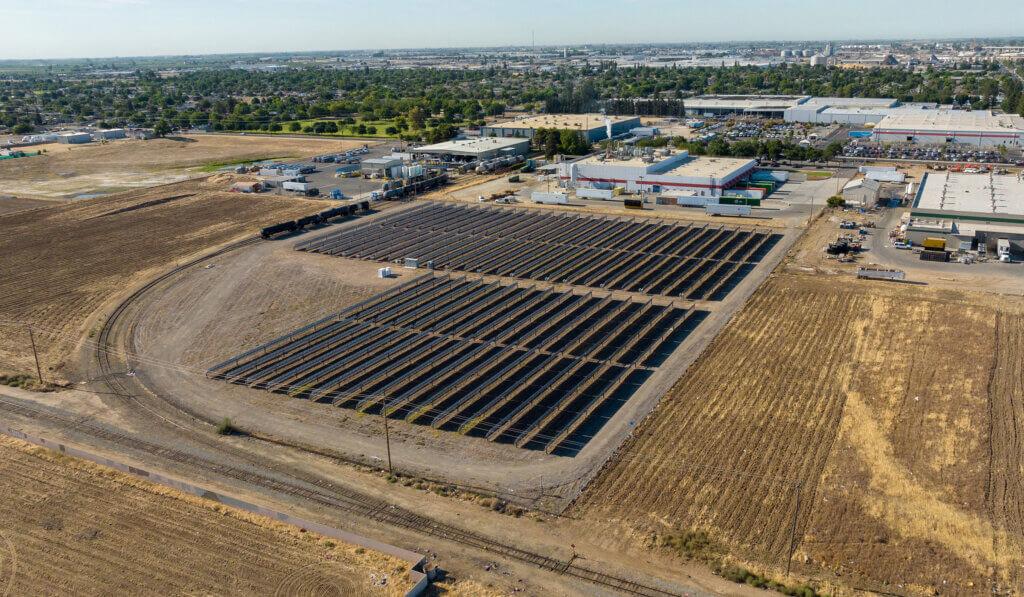
The system now produces one megawatt, which is the equivalent of the amount of power used by 400 homes a year. When the sun is shining, that electricity is more than enough to power the facility that processes 100,000 pounds of corn kernels each day.
Benefits for the Company and Community
At the time the deal was signed, the electricity rates the plant agreed to pay were significantly below the market. Since then, electricity costs in California have risen every year and show no signs of decreasing. Now the rates for the Corn Nuts® brand plant are far below what other businesses in Fresno are paying PG&E for power. On holidays and weekends when the plant isn’t running, the solar array continues to create electricity. The charge that can’t be stored in the onsite batteries is fed back into the community grid. The plants get credit, at the current rate, which offsets the times on cloudy days that the plant has to draw power from the grid.
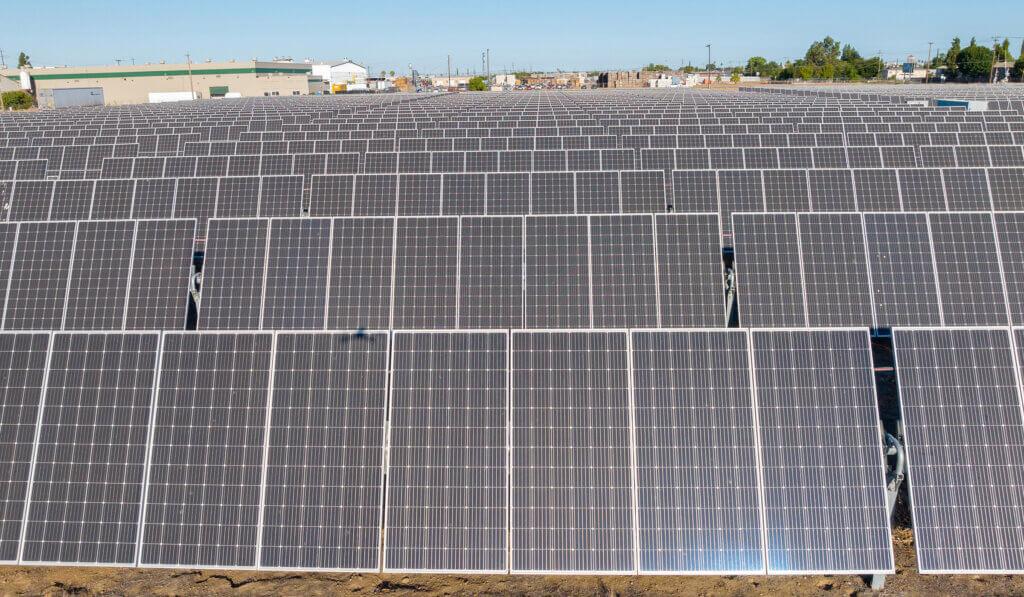
“There are huge economic advantages to the deal. It helps us reduce our business cost, improve our margins and keep us competitive in the market,” says Pattani. “But more importantly, we are providing sustainable energy to this community. We’re helping the whole town use renewable energy. You can see the panels as you drive by our facility and everyone knows that’s where we get the energy to make our Corn Nuts® products. We are very proud to have this in our backyard.”
It takes sun to grow corn and it takes sun to put the CORN NUTS® products in the bag
DAN PATTANI, PLANT MANAGER
The location of this solar installation, in the middle of the city of Fresno, is a testament to how solar can be easily integrated into urban environments, unlike traditional power plants. The array is surrounded by schools, apartment buildings, homes and other businesses. The plant is just a block away from Sequoia Middle School and the only real impact is the aroma of roasting corn kernels that sometimes drifts into classrooms.
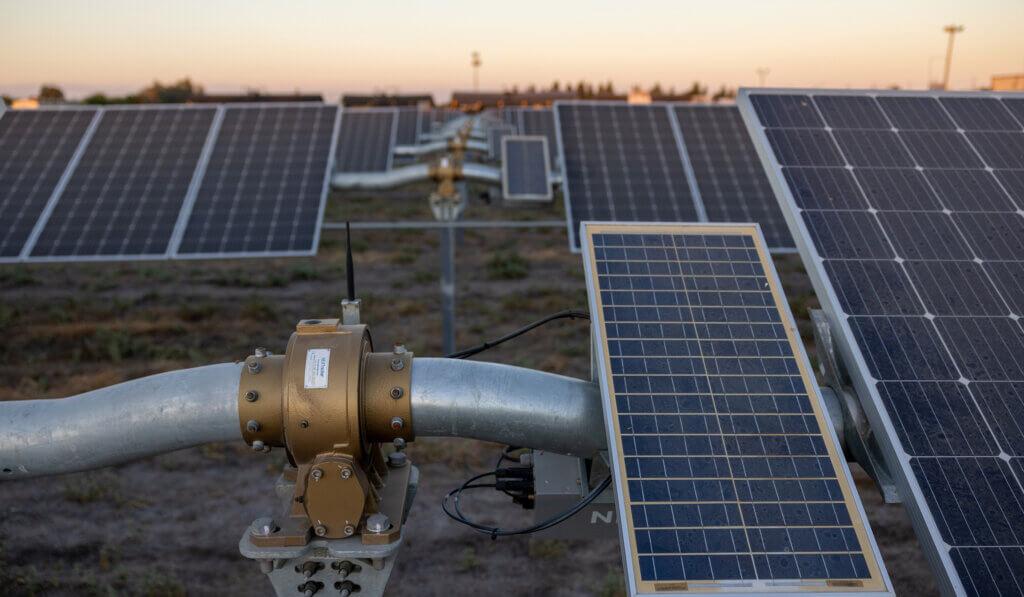
More Than Just Solar Innovation
The solar panels are not the only innovation at the Fresno plant. Over the last few years, the cooking and bagging process has become increasingly automated. Team members have moved from physically demanding repetitive tasks to learning to run sophisticated machines that increase the safety for both workers and the final product.
That innovation goes all the way back to the fields where the corn is grown. Unlike other products, where a manufacturer might have little connection to the growers of the raw materials, the making of Corn Nuts® products is an end-to-end operation. Hormel Foods owns the rights to the non-GMO hybrid corn variety and makes yearly contracts with farmers. Farmers receive their allotment of seed in the early spring and in mid-August the kernels are harvested and shipped to the Fresno plant for cooking and seasoning.
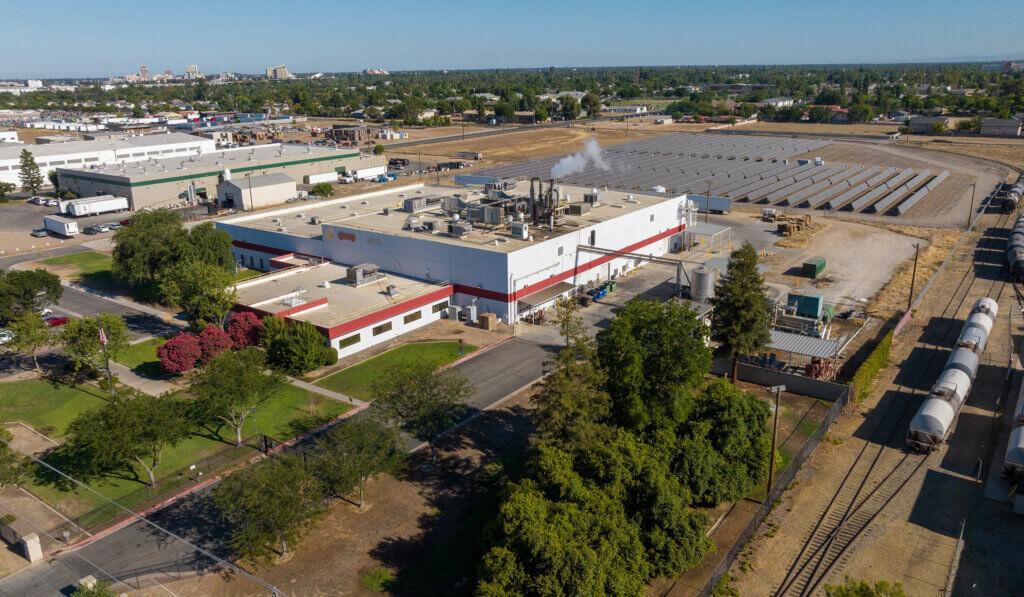
Innovation never ceases throughout the process. Seed hybridists are currently trying to develop a plant that will grow shorter and produce more ears of corn per plant. This will save water, which is especially precious as California goes through a multi-year drought. Farmers, for their part, are increasingly using drip irrigation systems to save water.
Growers also talk about pride in the product. Most corn is grown for cattle feed. When it’s harvested it goes into huge silos and the farmers lose connection with what they have grown. For those growing the proprietary Peruvian hybrid, their experience is different. “When farmers go into a corner store and see the product on the shelves, there is a lot of pride,” says Brown. “It’s a good feeling for these farmers for sure.”
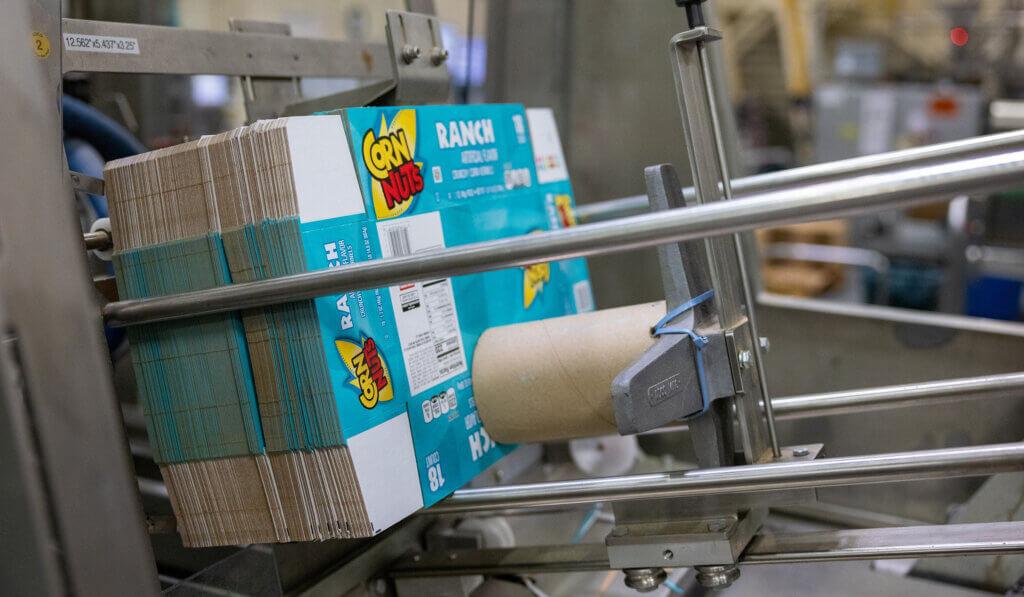
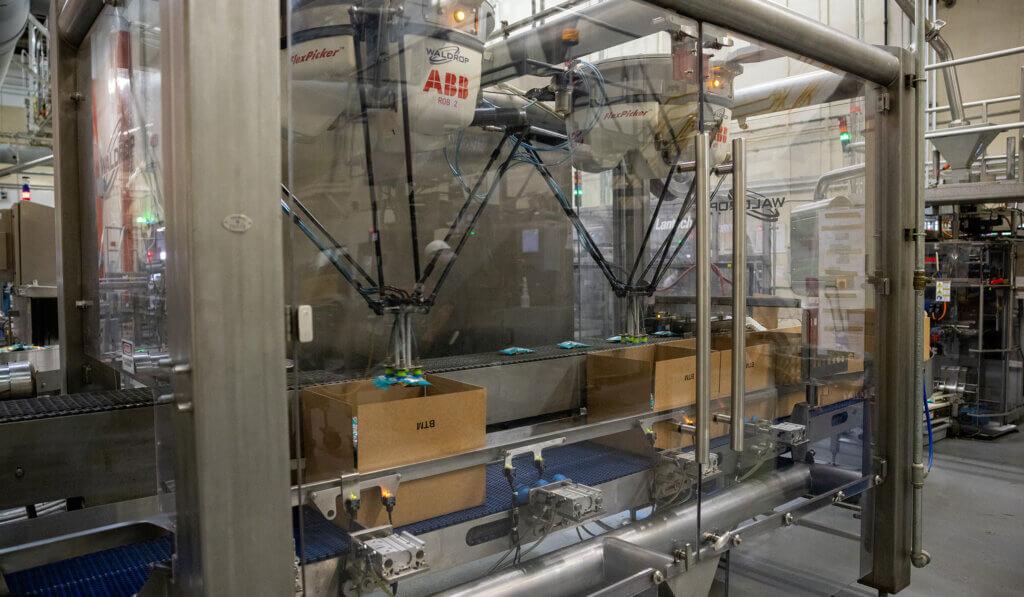
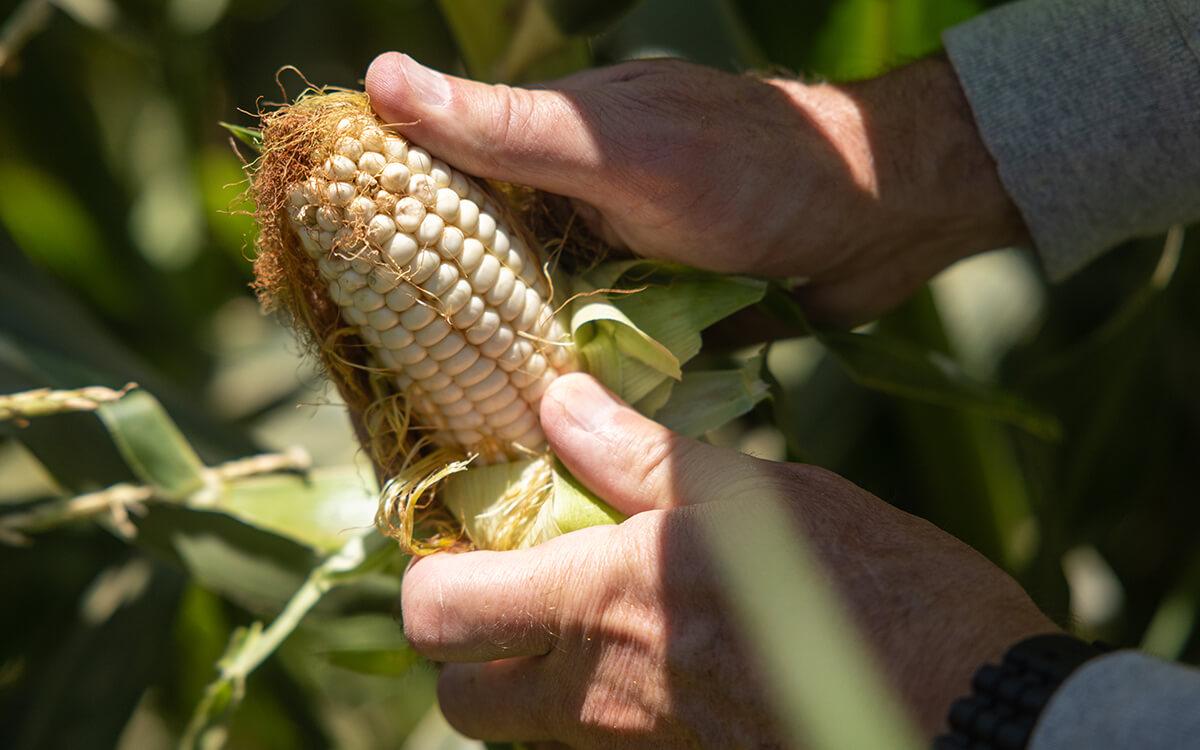
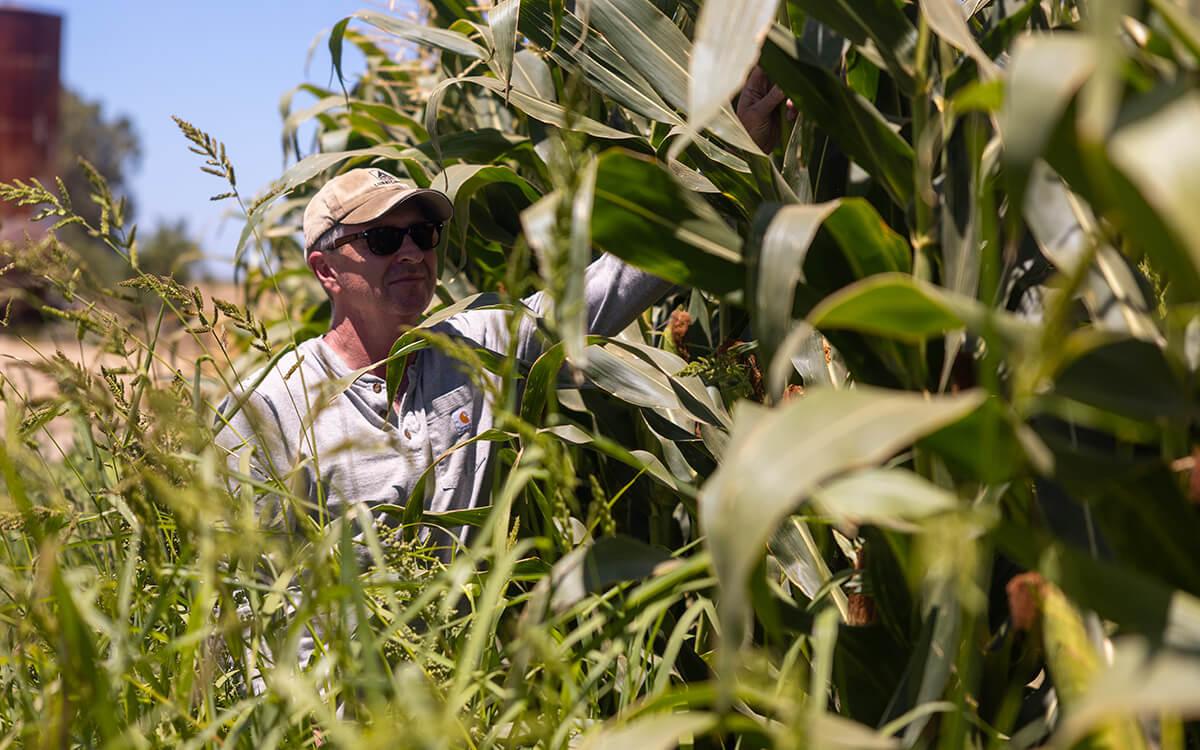
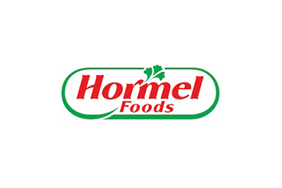
Hormel Foods Corporation
Hormel Foods Corporation
About Hormel Foods – Inspired People. Inspired Food.™
Hormel Foods Corporation, based in Austin, Minn., is a global branded food company with over $9 billion in annual revenue across 75 countries worldwide. Its brands include SKIPPY®, SPAM®, Hormel® Natural Choice®, Applegate®, Justin’s®, Wholly Guacamole®, Hormel® Black Label® and more than 30 other beloved brands. The company is a member of the S&P 500 Index and the S&P 500 Dividend Aristocrats, was named one of “The 100 Best Corporate Citizens” by Corporate Responsibility Magazine for the ninth year in a row, and has received numerous other awards and accolades for its corporate responsibility and community service efforts. In 2016, the company celebrated its 125th anniversary and announced its new vision for the future - Inspired People. Inspired Food.™ - focusing on its legacy of innovation. For more information, visit www.hormelfoods.com and https://csr.hormelfoods.com/.
More from Hormel Foods Corporation

